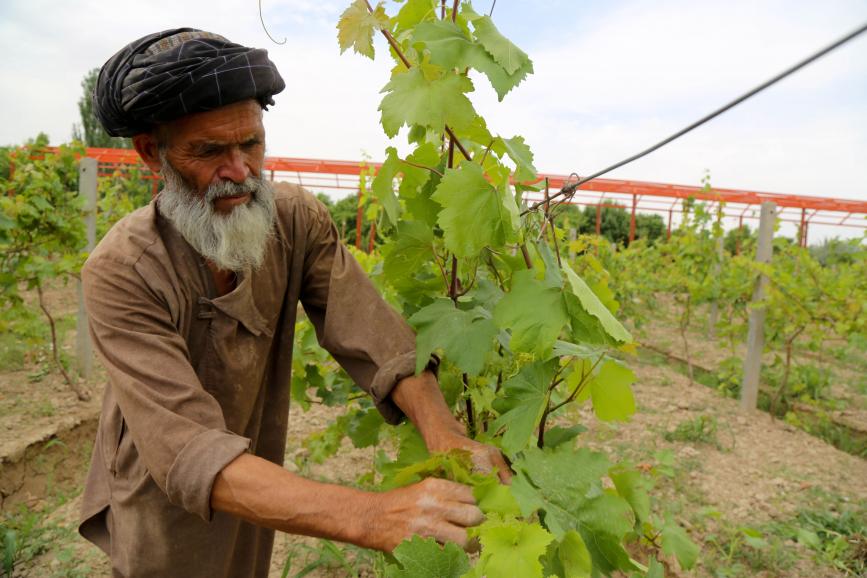Emergency Food Security Project (EFSP)

Food insecurity remains persistently high in Afghanistan, where nearly half of the population face crisis or worse conditions. The poor, especially those in rural areas, are hardest hit by food insecurity. Acute food insecurity affects 40 to 50 percent of the total population, doubling from 2015 to 2020–21. Climate change and lack of institutional capacity exacerbate this problem by impacting agricultural productivity, water availability, and rural livelihoods. In this context, the World Bank’s support focuses on improving resilience of the agriculture production system for selected beneficiaries.
The support is being delivered through four key components: (a) building resilience for food security, (b) provision of water and resilience services, (c) promoting farmer commercialization, and (d) implementation support.
Building Resilience for Food Security - This component supports increased food production in areas facing food shortages and insecurities. It provides farmers with drought-tolerant seeds and high-quality fertilizers and promotes climate-smart farming practices to improve resilience.
A new input voucher system will help farmers access seeds and supplies through local Agro-dealers, encouraging a more market-driven approach to seed distribution. The project will also partner with CGIAR research centers to introduce improved crop varieties that boost yields and help farmers adapt to climate-related challenges.
Water and Resilience Services - This component strengthens water conservation and irrigation systems to support long-term food security. It focuses on protecting soil and water resources in rain-fed, mountainous areas and improving irrigation efficiency in lowland regions, using locally produced equipment such as laser land levelers.
In the short term, the project boosts household income and food access through cash-for-work opportunities. Over time, better water management and increased food availability in local markets will help communities become more resilient to food crises.
Promoting Farmer Commercialization -This new component helps smallholder farmers and agri-businesses increase their income, market access, and value addition. It builds on previous efforts by investing in training, tools, and technologies that support climate-smart farming and processing practices.
In partnership with key value chain actors, the project will support small producers (20% women) and small and medium enterprises (30% female-owned) to better connect with established commodity markets, helping them grow their businesses and build long-term resilience.
Implementation Support - This component provides additional resources to cover project management and monitoring & evaluation costs, ensuring effective implementation of the expanded activities.